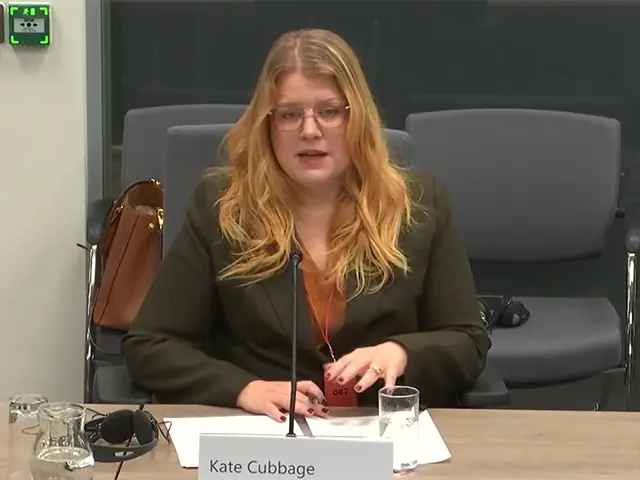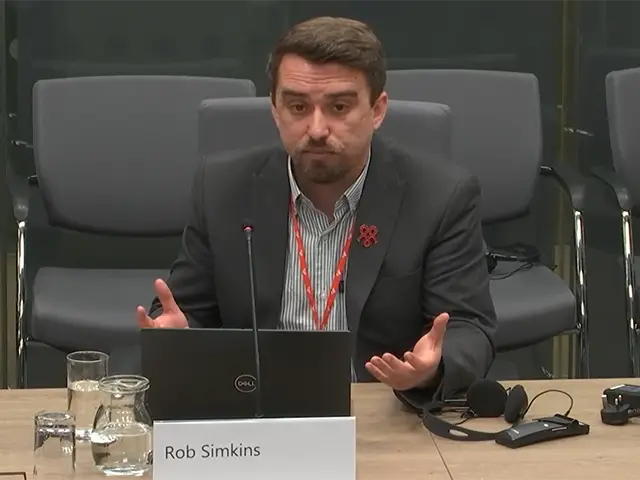Politics
Cameron’s hamstrung Exchequer


Pledges cost money: David Cameron’s hamstrung Exchequer
THE NATIONAL tabloids are often full of foaming at the mouth headlines about ‘scroungers’, stories about ‘dole fiddlers’, and tales expressing horror that some people pretend to be ill to get disability benefits.
That is nothing new and it is conspicuous that there is a spike in such stories (particularly involving those from outside the UK) when governments of whatever complexion have announced ‘welfare reform’ (cuts) ‘designed to deliver to those most in need’ (not those in most in need).
WHERE THE MONEY GOES: PENSIONS
Welfare spending makes up around 35% of the UK Government’s spending and totals over £260b per year. However, ‘welfare’ is a broad term and only a fraction of welfare benefits spending is on unemployment benefits.
The largest amount paid out in welfare benefits is for pensions and the Office for National Statistics’ last available figures show that £108b of the £258b welfare spend in 2014/15 went on pensions.
In fact, total pension spending has increased by 25% since the financial year 2010/11. This isn’t surprising as life expectancy has been steadily increasing, so state pensions are being claimed for longer. The remaining life expectancy for someone aged 65, in 2016, is 21 years for a man and 24 for a woman.
What that means is that the idea that people have ‘paid in what they get out’ is increasingly untrue. Some of those claiming pensions will have contributed comparatively little to their state pensions, whereas actuarial calculations on future pension need carried out when older pensioners were working would have been predicated on them dying within a few years of retirement. The fact that we are all living longer means that the proportion spent on pensions is likely to continue to rise just at the point when the working age population which funds the spending is in decline.
WHERE THE MONEY GOES: CARE AND DISABILITY
£29 b is spent on personal social services. About £41 b goes on benefits for people who are ill or disabled, while £10 b goes on elderly care payments. Disabled people are more likely to live in deprived areas and work in routine occupations. In the 2011 Census, 18% of people (10 million) reported some form of disability.
As for elderly care, there were 9.2 million people aged 65+ in 2011, making up 16% of our population. The care home population has actually stabilised over the last decade at around 300,000 people, but there has been an increase of 600,000 people (likely family members) providing unpaid care between 2001 and 2011. In total, 5.8 million (10%) provided unpaid care in England and Wales in 2011, and the majority were of working age.
W HERE THE MONEY GOES: POVERTY AND THE UNEMPLOYED
£44 b goes on family benefits, income support and tax credits. This includes benefits such as child benefit and support for people on low income. Around £3.5 b goes to the unemployed.
There were around 3 million people in in-work poverty in 2013. This meant their household income (adjusted for household size and composition) was below the poverty threshold and were in employment themselves. The 10% of households with the lowest disposable income spent an average of £196 a week in 2013. Of this, half (£98) was spent on food and non-alcoholic drinks, transport, housing (including net rent), and household fuel and power.
As for out of work people claiming Jobseeker’s Allowance and Universal Credit, there were 760,200 people claiming these benefits in January 2016. This number has decreased by 11.2% compared with a year earlier
WHAT ABOUT FRAUD?
The notion, often pushed by the tabloids, is that there is a massive amount of benefit fraud. A poll carried out by the TUC in 2012 revealed that British people believed that 27% of benefits were claimed fraudulently.
To describe that as a ‘wild overstatement’ does not do how wrong it is justice. It seems to be one of those figures arrived at on the basis that ‘everybody knows’, rather than being remotely founded in reality.
The actual level of all fraud in the UK’s welfare benefits system was 0.8% in 2014/15.
While that is the amount of detected fraud, to suggest that it is completely out of line with actuality is to ignore the fact that the UK government employs 12 times as many benefits fraud investigators than it has tax fraud investigators.
The UK loses six times more through tax evasion and aggressive tax avoidance than the total value of fraudulent welfare benefit claims. Moreover, the UK fails to collect £34b in tax each year. And that is providing you accept the UK government’s figures, which are disputed by some economists as a wild underestimate.
While benefits fraud is an issue, there is an argument that the amount of time spent on it and the amount of publicity it receives is out of all proportion to the actual value of the fraud involved.
University of Warwick political scientist Adam Taylor said: “
This isn’t to say that benefit fraud is OK or that HMRC isn’t doing anything about tax evasion. But it is wrong that the government feels it can openly threaten the poor while merely cajoling the rich. And it is sad that the tax-burdened middle class reserve their outrage for the single mother working in the cafe while lionising the rich, famous and powerful who are getting away with it, tax free.”
WHO PAYS?
Successive governments have been aware of the crisis facing benefit payments for over two decades and yet none of them has sought to do anything more than fiddle at the margins and target the most vulnerable and weakest members of society: the Cameron Government spent an enormous amount of political capital to no good end making an economically pointless adjustment to housing benefit with the hated bedroom tax. The projected savings from that policy were tiny.
In addition, the amount of direct tax paid by the working population is contracting along with the numbers of those in work and the changing profile of work economic activity.
In the past, when the welfare model was fixed, there was generally one full time bread winner per working class family in a job which lasted an entire working life. Stable incomes represented a stable and predictable tax yield. However, the change from a high labour manufacturing economy to a service-based one with lower labour requirements, altered the whole dynamic of working class life. Multiple part time jobs may reduce the number on the unemployed role, but lower income jobs pay less into the UK’s tax base.
So, the question that all governments face is how to provide people with the welfare benefits they need without upsetting voters who have to pay for them.
NO EASY ANSWER
The issue is particularly acute due to David Cameron’s 2015 promise not to raise National Insurance, Income Tax, or VAT. Where else, the question might fairly be asked, would the money come from? Especially as there is a guaranteed 2.5% increase per annum in the state pension.
Oh – and older voters and pensioners vote in far higher numbers than the young. On the basis that turkeys seldom vote for Christmas, you can guess why politicians are wary of doing anything to affect that demographic.
One thing is certain, fiddling at the margins is not enough. But whether politicians have the will to make the sort of changes needed to the UK’s tax and welfare system, is one of those questions to which there is no glib answer.
Which do you prefer, after all, higher taxes or cuts targeted at those least able to defend themselves?
Business
Pembroke Dock restaurant to close on Christmas Day after £23,000 rates rise

A PEMBROKE DOCK restaurant owner has said she is “devastated” after being forced to close her business on Christmas Day following a projected business rates increase of more than £23,000.
Randalls Restaurant, which operates from The Dolphin Hotel in Pembroke Dock, has been run by Natalie Newton and her family since 1999. Ms Newton took over the business in 2018 after her parents retired, overseeing a major transformation from a traditional pub and bed and breakfast into a hotel and restaurant.

For the past seven years, she and her fiancée, chef Ben Randall, have worked to build the restaurant’s reputation, offering breakfasts, lunches and evening meals using locally sourced produce where possible, as well as hosting special events including Christmas parties, buffets, afternoon teas and themed dining nights.
However, Ms Newton said she was left with no option but to close the restaurant after discovering that its business rates are expected to rise from around £10,000 to £33,000 from next year.
She said: “It’s a great shame. My father is absolutely devastated – this was his legacy. I took it over and built a really successful restaurant, and now it feels like it’s been taken away.”
Ms Newton said she checked her projected rates bill using the Government’s online calculator and was shocked to see that it had more than trebled. With quieter trading months expected early in the year, she said the increase was simply not sustainable.
“January, February and March are quieter months,” she said. “From April I’d need to find an extra £2,750 every month. Even if I managed it, I’d be working for nothing, and I’m worried I wouldn’t be able to pay my bills and would end up in the red.”
She added: “I’ve made the decision to close straight after Christmas Day. It’s drastic, but I have to keep my head above water and protect everything my parents worked for.”
Ms Newton said the decision had not only affected her family but also the restaurant’s eleven members of staff.
“I’ve invested everything back into this business,” she said. “Every penny the restaurant has made has gone straight back into it. I’ve worked every day, nights and weekends, and I haven’t had Christmas at home for seven years.
“For the last six months I’d look around the restaurant when it was busy and think how lucky we were. People were happy, good food was going out. Now it feels like it’s all been snatched away.”
The Herald has reported extensively on growing concern among Pembrokeshire businesses over sharp increases in business rates following updated valuations, with several town centre traders warning that rising fixed costs are pushing otherwise viable businesses to the brink.
Ms Newton said she intends to focus on running the hotel after Christmas but will miss the restaurant and its customers.
“I’m going to miss everyone,” she said. “I’ve loved building relationships with customers over the years. I just want to thank everyone who believed in Ben and me and supported us.”
Business rates in Wales are due to be updated from April 1, 2026, to reflect current property values. The Welsh Government has said that while many businesses will see their bills fall, others will face increases.
It has announced that any business facing an increase of more than £300 will have the rise phased in over two years rather than being applied in full immediately.
Cabinet Secretary for Finance and Welsh Language Mark Drakeford said previously: “We know businesses have faced significant economic challenges in recent years. This support package will help them manage the transition to updated rates bills while we deliver on our commitment to a fairer rates system.”
Community
Cilgerran school could be discontinued as consultation launched

A CONSULTATION on proposed changes for a north Pembrokeshire school, which attracted a near-400-strong petition in opposition to the council, has been launched.
At its May meeting, Pembrokeshire County Council considered a report of the School Modernisation Working Group which outlined the findings of a review of education provision in the Preseli area.
“In particular, the review considered the extent of surplus school places in the area, set against a significant decline in the pupil population,” the council in its consultation on proposals for discontinuation of Cilgerran Church in Wales Voluntary Controlled School has said.
A later July meeting of the council, following May’s agreed consultation with St David’s Diocese, backed a general consultation to discontinue Cilgerran Church in Wales Voluntary Controlled School, and to establish it as a 3-11 community school.
The consultation was launched on December 16 and runs to January 30.
Hundreds have opposed the proposed changes, with a petition, on the council’s own website opposing the changes recently closed after gaining 391 signatures.
Any petition of between 100 and 499 signatures triggers a debate at one of the council’s Overview and Scrutiny Committees, and any over 500 a debate at full council, meaning this petition will be heard by committee members at a later date.
The proposals for Cilgerran are part of a wide range of potential education changes in the county.
Two petitions, opposing the potential closures of Manorbier and Ysgol Clydau schools, were recently heard at full council and a further petition opposing the potential closure of Stepaside School has recently been launched.
The Cilgerran e-petition, created by Louise Williams, raised concerns including the school could become part of a federation, a loss of permanent head teacher on site, a shared head teacher would have to oversee several schools, loss of funding control and the ability to maintain the school’s current healthy and stable funding, and a loss of commitment to the church, in turn could impact on the school’s and pupils values, beliefs and cultural beliefs.
It said: “Ysgol Cilgerran VC school has strong links with the Church community in Cilgerran and we believe this will have a negative impact on the children who attend the school, the community of Cilgerran and the links between the two.
“We are proud of our school ethos and values which are strengthened by our links with the church. The school has close and strong relationships with our Church in Wales federation governors one of which is also our safeguarding governor.
“Our Church Federation governors work closely with the school and are regular visitors to the school and the children. They provide vital support and guidance to the school and have a positive impact on the Children’s education. We believe these links will be weakened by this proposal to remove our VC status and we believe this is an un-necessary action.”
Community
‘Harrowing’ distress now the norm for unpaid carers in Wales

“HARROWING” levels of distress have become the norm for unpaid carers in Wales, a committee has heard, with charities warning of a support system “set up to fail”.
Kate Cubbage, director of Carers Trust Wales, told the Senedd’s health scrutiny committee: “There are too many carers who are reaching crisis point without any support.”
Ms Cubbage explained that most councils are supporting fewer than 500 carers, warning: “There are really, really high levels of unmet need within our communities.”
She told Senedd Members that staff are receiving trauma training to support their mental health due to the levels of distress they are seeing among carers.
Ms Cubbage pointed to a University of Birmingham study which found an increased suicide risk among unpaid carers akin to that of veterans who have seen active service.
“One in eight carers has made a plan to end their own life,” she said, calling for carers to be specifically considered in the Welsh Government’s suicide prevention strategy.
“One in ten has made an attempt… at a time when the average local authority has support plans for less than 0.5% of the caring population.”
Warning of deepening poverty in Wales, the witness expressed concerns about a 31% poverty rate among carers – “far higher” than the 22% in the wider population.
Ms Cubbage added that young carers miss more than six full school weeks each year, compared with pupils without caring responsibilities who miss nearer two weeks.

She told the health committee: “It’s no wonder young carers are achieving less at school. They are less likely to go on into further and higher education.
“And if they do make it to university, they’re less likely than their peers to actually graduate.”
Reflecting on a personal note, Ms Cubbage, a parent carer, said her autistic son has accessed services from ophthalmology to audiology over the past 16 years.
“I have never once been signposted to anything that would suggest that I am an unpaid carer or that I can access support… That kind of lived experience is really important.”
Rob Simkins, head of policy at Carers Wales, added: “Things are getting worse: anecdotally, we see that through our services but also that’s what the research tells us.”

He pointed to a Carers Wales survey which has shown a “shocking” 53% increase in the number of carers cutting back on food and heating.
Giving evidence on Wednesday December 17, Mr Simkins warned of a 39% increase in the number of carers reporting “bad” or “very bad” mental health since 2023.
“All the evidence that we’re collecting shows that this is going in one direction,” he told the committee, adding: “And that’s the wrong direction. It’s a bleak context.”
Mr Simkins said census data shows about 310,000 unpaid carers in Wales but research indicates the number could be nearer 500,000 – roughly 15% of the population.
He cautioned that charities across the country, including Carers Wales, are seeing real-terms cuts in funding from the Welsh Government every single year.
Mr Simkins warned of a “shocking” lack of data and a system “set up to fail” more than a decade on from the then-Assembly passing the Social Services and Wellbeing (Wales) Act.
Warning some councils cannot quantify how many carers’ assessments they could carry out over 12 months, he asked: “How on earth are you meant to collect data from unpaid carers and plan services if you can’t even figure out how many you can assess?”
Asked about carers’ assessments, he highlighted a lack of capacity within councils as he warned a “pitifully low number of carers go on to get any support at all”.
Greg Thomas, chief executive of Neath Port Talbot Carers Centre, told Senedd Members the voluntary sector is being increasingly asked to plug gaps without necessary funding.
He warned the jam is having to be spread “ever-more thinly”, creating a tension between reaching as many people as possible and not wanting to compromise quality of support.
“We’re not quite saying ‘no’ to people,” he said. “But we’re having to say a qualified ‘yes’ about what we’re able to offer… We’re massively overstretched, massively oversubscribed.”
Mr Thomas told the committee the carers’ centre has the required reach and expertise, concluding: “It’s almost give us the tools and we can do the job.”
If you have been affected by anything in this story, the Samaritans can be contacted for free, 24/7, on 116 123, or by email at [email protected].
-

 Crime4 days ago
Crime4 days agoMilford Haven man jailed after drunken attack on partner and police officers
-

 News6 days ago
News6 days agoDyfed-Powys Police launch major investigation after triple fatal crash
-

 Crime3 days ago
Crime3 days agoTeenager charged following rape allegation at Saundersfoot nightclub
-

 Crime4 days ago
Crime4 days agoMan charged with months of coercive control and assaults
-

 Crime5 days ago
Crime5 days agoMan sent to Crown Court over historic indecent assault allegations
-

 Crime5 days ago
Crime5 days agoMilford Haven man admits multiple offences after A477 incident
-

 Crime7 days ago
Crime7 days agoTrefin dog case ends in forfeiture order after protection notice breach
-

 Crime4 days ago
Crime4 days agoWoman ‘terrified in own home’ after ex breaches court order






















